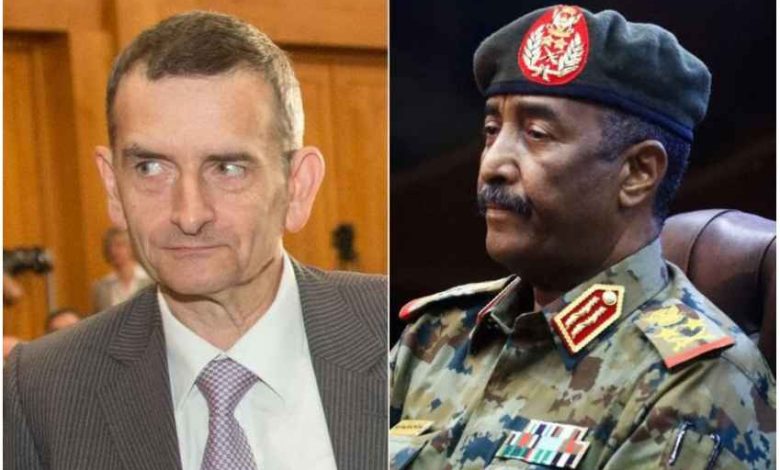What does terminating UNITAMS mission mean?

Report – Al-Nour Ahmed Al-Nour
After months of tension between the Sudanese government and the head of the United Nations Mission to Support the Transition in Sudan (UNITAMS), Volker Perthes, the UN Security Council has ended the mission’s mandate in Sudan and transferred its tasks to the UN agencies in the country, amid division in political circles over the action.
Supporters of the Sudanese army and its leadership considered the action a victory for the national will and Sudanese diplomacy, while opponents of the regime headed by Sovereign Council, Abdul Fattah al-Burhan, believe that the continued deterioration of the situation in the country will lead to a new international intervention that would allow the use of force.
The Sudanese Ministry for Foreign Affairs has expressed in a statement its satisfaction with the decision to end the mandate of the UN mission. The FM Undersecretary, Dafallah Al-Haj Ali, pledged to work hard towards ending the war, address its effects, and complete the course of the transition period, by reviving an expanded political process with pure national will that leads to free and transparent elections.
Last Friday, the Security Council (SC) approved the termination of the mandate of the UNITAMS mission, effective today, Sunday, December 3, with a vote of 14 of its members and Russia abstaining from voting.
Alternative option
Political analyst Mohammed Latif says, “There are groups that celebrated the Security Council’s decision and considered it a victory for their battle with Volker Perthes and the Forces of Freedom and Change (FFC) coalition, which they consider complicit with them.”
Latif believes that if those celebrating the end of the UN mission’s mandate had thought a little, they would have noticed the seriousness of the situation, through the words of some representatives of member states about the seriousness of the situation in Sudan and its impacts on civilians, which places more duties on the United Nations and not the other way around.
Speaking to Al Jazeera Net, Latif believes that with the SC confirming the seriousness of the situation and the military confrontations, the poor security conditions and humanitarian threats, the abolition of the UN civilian arm, and the continuing dangers facing Sudan, the SC will resort to another option, which is moving to Chapter Seven, “Use of Force” to impose security in the country.
Different standpoints
The head of the National Movement Forces Alliance, Al-Tijani Al-Sisi, believes that ending the UNITAM mandate came too late after it plunged the country into a devastating war.
Sisi told Al Jazeera Net, “UNITAMS has gone and it failed to implement any of the items contained in its mandate, and it bears full responsibility for increasing the pace of political polarization in Sudan.”
It is believed that Volker Perthes bias towards the FFC, which showed inflexibility and closed the doors to national consensus, contributed to pushing the country towards war.
On the other hand, the leader of the FFC, Maher Abu Al-Goukh, says, “The end of the mission of the UN mission was imposed by variables, the most prominent of which is that it works in accordance with Article Six of the United Nations Charter to support the democratic transition, and with the outbreak of war, the scene became linked to threats to security and regional peace, which requires measures in accordance with Article Seven.” “It is outside the mission’s mandate.”
In an interview with Al Jazeera Net, Abu Al-Goukh believes that if the mission’s mandate is extended, it will face obstacles from the “de facto” government in Port Sudan,” which has requested the end of the mission mandate.



